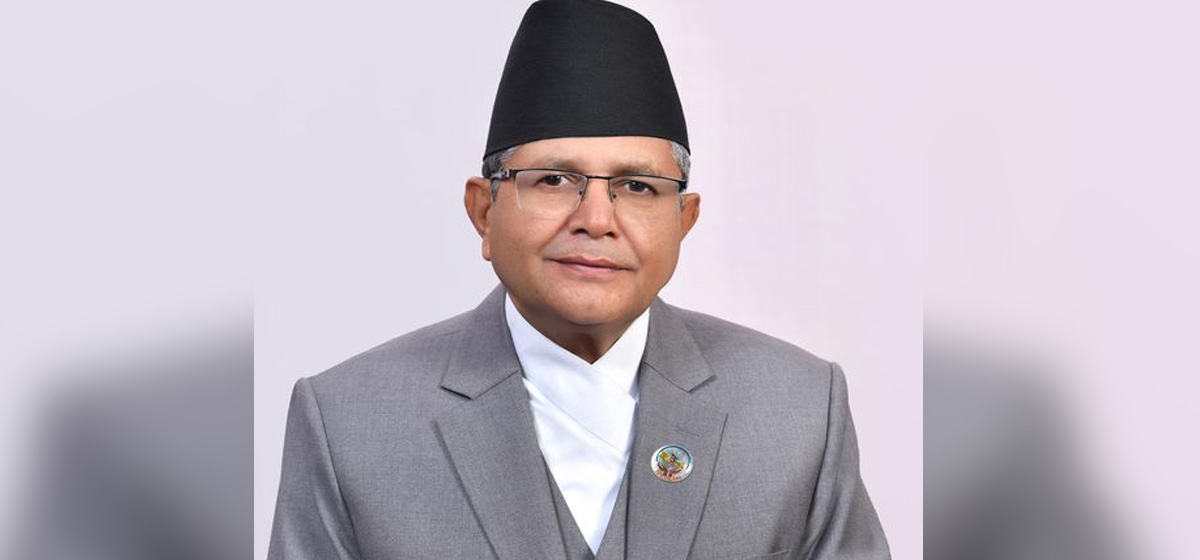The vast majority of 32 prisoners belong to Bhutan’s Nepali-speaking Lhotshampa community, which has faced decades of discrimination and abuse from the Bhutanese government.
KATHMANDU, March 15: An international non-governmental organization Human Rights Watch (HRW) has urged the Royal Government of Bhutan to quash the convictions of several dozen political prisoners who have been detained for decades and release them.
HRW reports that Bhutanese courts convicted and imposed long sentences on peaceful political and anti-discrimination activists and others arrested for a range of alleged national security offenses. The cases originate from before 2008, when Bhutan transitioned from an absolute monarchy to a constitutional one. Those still imprisoned face long sentences, including life in prison.
Bhutanese activists also have appealed to King Jigme Khesar Namgyel Wangchuck to grant amnesty to these prisoners. “Bhutan’s publicly promoted principle of ‘Gross National Happiness’ doesn’t account for these wrongfully convicted political prisoners who have been behind bars for decades,” said Meenakshi Ganguly, South Asia director at HRW. “The Bhutanese authorities should recognize the harm done to these long-serving prisoners and their families and urgently remedy the situation.”
AWC urges govt to make judiciary free from political influence

While the total number of political prisoners in Bhutan remains unknown, HRW has collected information relating to 37 current prisoners who were first detained between 1990 and 2010. Most of them are held separately from other prisoners, in poor conditions, with many suffering physical or psychosocial (mental health) ailments, and are denied regular communication with their families.
The vast majority of 32 prisoners belong to Bhutan’s Nepali-speaking Lhotshampa (Southerner) community, which has faced decades of discrimination and abuse from the Bhutanese government. In the early 1990s, over 90,000 Lhotshampas were forced to become refugees in Nepal, following a crisis precipitated by discriminatory laws, disputed citizenship regulations, and widespread abuses by Bhutan’s security forces. Most of the refugees have since been resettled in the United States, Canada, and Australia.
Similarly, it has been found that the remaining five prisoners belong to the Sharchop (Easterner) community. Four men and a woman are imprisoned for alleged connections to a banned political party, the Druk National Congress, which campaigned for parliamentary democracy and human rights.
Bhutanese civil society activists told Human Rights Watch that although there have been efforts to modernize the legal system since 2008, no human rights organizations operate within the country. The media also avoids reporting on topics that the authorities consider sensitive. As a result, there has been little public discussion about the political prisoners or their dire situation.
Of the 32 Lhotshampa political prisoners that Human Rights Watch identified, 15 were convicted and imprisoned since the 1990s for protesting mistreatment of their community. This group includes eight former Royal Bhutan Army soldiers who were accused of treason for allegedly participating in those protests. However, family members and former prisoners could not provide any documentation about the charges filed or the court verdict.
Another 15 Lhotshampas have been jailed since 2008, after a small group of refugees who had fled as children with their families in the early 1990s returned to Bhutan. The Bhutanese authorities alleged that they intended to participate in an armed campaign for refugee repatriation and minority rights led by the banned Bhutan Communist Party.
Former and current prisoners, and relatives of prisoners, said that the authorities severely tortured detainees both to extract confessions and to punish them, and that they had no legal representation at their trials. “The physical torture in custody was merciless, so we had no option but to present ourselves to the court based on their security forces demands and their statements. Then the district court declared a sentence of life imprisonment for us. We weren’t given any legal help,” HRW quoted one of the prisoners convicted of treason and terrorism.


































